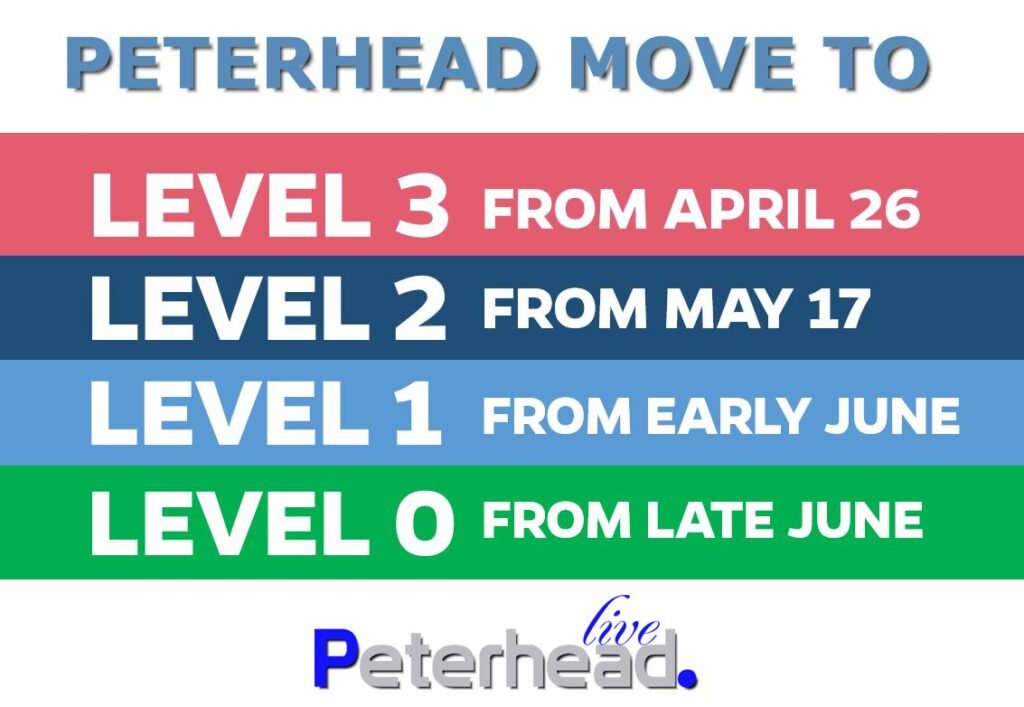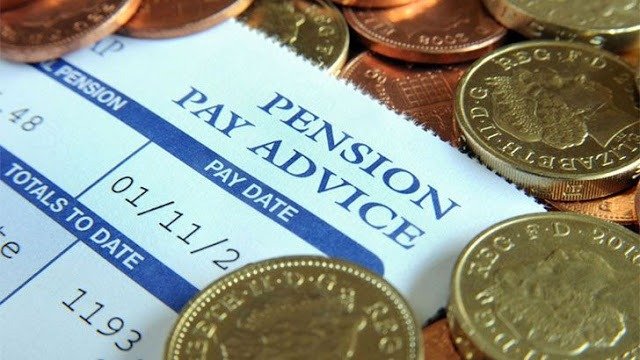Producers to Apply for Funding
MSP Urges Local Producers to Apply for Funding
MSP Urges Local Producers to Apply for Funding
Economics in Peterhead, Aberdeenshire, Scotland
Producers to Apply for Funding
MSP Urges Local Producers to Apply for Funding
Fisheries and Coastal Communities
Fisheries and Coastal Communities
Trawlermen wanted for north-east's first Prawn Tailing World Championship at SeaFest Peterhead
Prawn Tailing World Championship at SeaFest Peterhea
Nicola Sturgeon has announced details of the further relaxation of restrictions across Scotland.
From Monday 26 April, hospitality venues such as cafes, pubs and restaurants can reopen, along with tourist accommodation.
Non-essential retail outlets and close contact services such as beauty salons can also reopen, in addition to indoor attractions and public buildings such as galleries, museums and libraries.
The First Minister confirmed that all parts of the country will move to Level 3 from Monday 26 April. The remaining travel restrictions within Scotland will be lifted and travel within the UK will be permitted for any purpose.
If everyone continues to follow the rules, the First Minister said it is expected that all of Scotland will move to Level 2 on Monday 17 May.
Further changes from 26 April include:

The First Minister also announced that rapid coronavirus (COVID-19) tests will be made available to anyone in Scotland and to those planning travel to the islands.
From today, anyone planning travel to the islands next week can order a free home test kit online. The first test should be taken three days before travel and the second on the day of departure.
From Monday, lateral flow home test kits will be available to anyone in the wider population who does not have COVID-19 symptoms. They can be picked up from local walk/drive-through test sites for people to test themselves twice-weekly. Anyone in Scotland who develops COVID-19 symptoms should self-isolate and book a PCR test.
The expansion is aimed at finding cases that would otherwise go undetected, so those people can self-isolate and avoid transmitting the virus to those around them.
First Minister Nicola Sturgeon said:
“The changes that come into force next week have been hard earned by all of us. I know that many will be looking forward – quite rightly – to their first drink in a beer garden, to catching up with a friend in a café, or to going on holiday somewhere in Scotland.
“But even as we enjoy those moments, we still need to be careful. We must remember the virus is more infectious now than it was when bars and cafés were last open, so we must still stick to the rules. However, we are hopeful of seeing sustained progress in the weeks and months ahead.
“We are keeping island communities in Level 3 at the moment, so that we can allow travel between those communities and the rest of Scotland. If you are planning to travel to an island and do not have COVID-19 symptoms, we will encourage you to take two lateral flow tests for COVID-19 before you depart. This is an important way to reduce the risk of bringing COVID-19 into island communities. If you are travelling to an island next week, it is possible to get tests from today, and I would encourage you to do that.”
Higher rate: £89.60 (from £89.15)
Lower rate: £60.00 (from £59.70)
April 2021 rate: £67.60 (from £67.25)
Care Component
Highest: £89.60 (from £89.15)
Middle: £60.00 (from £59.70)
Lowest: £23.70 (from £23.60)
Mobility component
Higher: £62.55 (from £62.25)
Lower: £23.70 (from £23.60)
Under 25: £59.20 (from £58.90)
25 or over: £74.70 (from £74.35)
Under 25: £59.20 (from £58.90)
25 or over: £74.70 (from £74.35)
Entitled to main phase ESA: £74.70 (from £74.35)
April 2021 rate: £114.70 (from £114.15)
Under 25: £59.20 (from £58.90)
25 or over: £74.70 from (£74.35)
Under 25: £59.20 (from £58.90)
25 or over: £74.70 (from £74.35)
Under 25: £59.20 (from £58.90)
25 or over: £74.70 (from £74.35)
Standard rate: £151.97 (from £151.20)
Single: £177.10 (from £173.75)
Couple: £270.30 (from £265.20)
Daily Living Component
Enhanced: £89.60 (from £89.15)
Standard: £60.00 (from £59.70)
Mobility Component
Enhanced: £62.55 (from £62.25)
Standard: £23.70 (from £23.60)

Full New State Pension: £179.60 (from £175.20)
Basic Old State Pension (Category A or B): £137.60 (from £134.25)
Standard rate: £122.55 (from £121.95)
Standard rate: £151.97 (from £151.20)
Standard rate: £96.35 (from £95.85)
Standard allowance
Single
Single under 25: £344.00 (from £342.72)
Single 25 or over: £411.51 (from £409.89)
Couple
Joint claimants both under 25: £490.60 (from £488.59)
Joint claimants, one or both 25 or over: £596.58 (from £594.04)
Child Elements
First child (born prior to 6 April 2017): £282.50 (from £281.25)
First child (born on or after 6 April 2017) or second child and subsequent child (where an exception or transitional provision applies): £237.08 (from £235.83)
Disabled Child Additions
Lower rate addition: £128.89 (from £128.25)
Higher rate addition: £402.41 (from £400.29)
Limited Capability for Work
Limited capability for work amount: £128.89 (from £128.25)
Limited capability for work and work-related activity amount: £343.63 (from £341.92)
Carer
Carer amount: £163.73 (from £162.92)
Standard allowance
Single
Single under 25: £257.33
Single 25 or over: £324.84
Couple
Joint claimants both under 25: £403.93
Joint claimants, one or both 25 or over: £509.91
For the more information about, benefit increases, visit the www.gov.uk website here.
Aberdeenshire council tax freeze
Aberdeenshire Councillors have decided at a full meeting of council today to accept a Aberdeenshire council tax freeze which has been supported by funding from the Scottish Government despite concerns over the future implications of the move.
The motion to accept the freeze was made by 60 votes to four in favour.
Finance Secretary Kate Forbes announced that the Scottish Government announced that it would compensate councils who choose to freeze their council tax at 2020/21 levels and that the additional allocation would equate to an increase in council tax of 3 per cent.
However there was no confirmation and promise that this level of financial support would be repeated in the following financial years to come leading to an amendment being brought by members of the council to still go ahead with the rise due to the uncertainty and the knock on effect on future budgets.
For Aberdeenshire Council the tax bands for 2021/22 will be as follows –
| Band | Council Tax | Water | Sewerage | Total | |
| A | £867.21 | £141.66 | £164.46 | £1,173.33 | |
| B | £1,011.74 | £165.27 | £191.87 | £1,368.88 | |
| C | £1,156.28 | £188.88 | £219.28 | £1,564.44 | |
| D | £1,300.81 | £212.49 | £246.69 | £1,759.99 | |
| E | £1,709.12 | £259.71 | £301.51 | £2,270.34 | |
| F | £2,113.82 | £306.93 | £356.33 | £2,777.08 | |
| G | £2,547.42 | £354.15 | £411.15 | £3,312.72 | |
| H | £3,186.98 | £424.98 | £493.38 | £4,105.34 |

Water rates will be confirmed when bills are issued at the end of February.
Leader of the Opposition SNP, Labour and Communities Partnership councillor Gwyneth Petrie said:“Families across Aberdeenshire will be relieved that councillors across parties have backed moves to freeze the Council Tax rate.
“The past nine months have been a time of extreme anxiety for many people who have seen their jobs threatened or disappear, or seen their businesses placed under extreme pressure.
“Freezing the Council Tax will give certainty to people that their bill will not increase during this financial year.
“I am therefore very pleased that the council has agreed this measure.”
It was also agreed that average weekly rents for council housing should increase only at the rate of inflation this year, meaning a 2.8 per cent rise from April 1.
This will see the average weekly rent increase by £2.29; a rise from £81.82 to £84.11.
A new £7.75 million funding package will offer support to fishermen, seafood businesses and ports and harbours threatened by the ongoing effects of coronavirus (COVID-19) and EU Exit.
The package includes:
Fisheries Secretary Fergus Ewing said:
“In the absence of any further clarity on resilience funding from the UK Government we are stepping in to support the industry and coastal communities across Scotland and ensuring we meet the emergency needs of crews by providing welfare support through the Fishermen’s Mission.
In addition to this funding, last week we also supported calls for a new dedicated task force, and announced funding for two new experts to help businesses navigate the new processes and requirements.
Seafood sector “Both shellfish and trout businesses who have faced losses due to COVID-19 hospitality closures across Europe are now losing products or facing additional costs due to border disruption and new non-tariff barriers. It’s not just exporting, we know this has serious knock-on effects that ripples right through the supply chain from boats struggling to land at ports to not being able to sell their catch.
“The fund for shellfish and trout businesses will help the sector survive the ongoing loss of domestic sales due to COVID-19 and the current immediate challenges of Brexit, giving them some breathing space and allowing businesses to make the changes they need to adapt to the new, tougher, trading realities.”
Full details of the Seafood Producers Resilience Fund will be available on the Marine Scotland section of the Scottish Government website from Friday 5th February.
Funding for new seafood experts to help businesses navigate paperwork was announced by the Rural Economy Secretary last week.
The Scottish Government’s Communities Recovery Fund for community groups, charities, social enterprises and voluntary organisations impacted by COVID-19 and suffering from hardship closes to applications on Friday 12th February.
The UK Government announced a compensation scheme on Tuesday 19th January but has still to set out eligibility detail.
The Scottish seafood industry is highly reliant on exports, particularly to the EU. In 2019, seafood accounted for 57% of Scotland’s overall food exports and had a value of approximately £1.02 billion.
The EU is Scotland’s most significant overseas export market for seafood products, accounting for around three-quarters (76%) of Scottish seafood sector exports in 2019, and worth £777m. Scotland is a net exporter of seafood to the EU, with a trade surplus of £615m in 2019.
Green ports to aid economic recovery
Green ports to aid economic recovery